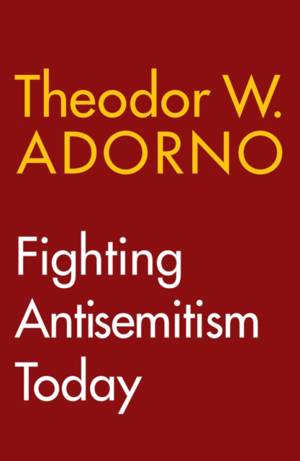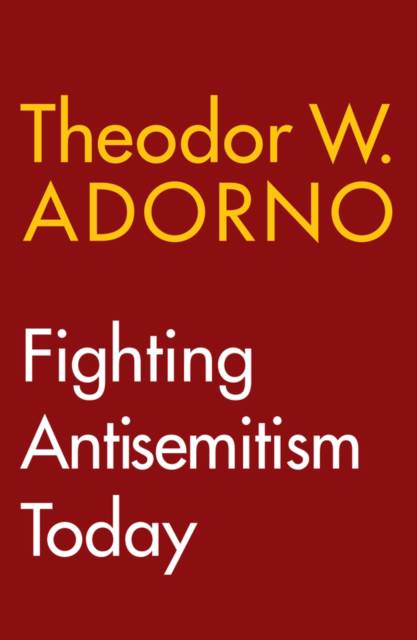
- Afhalen na 1 uur in een winkel met voorraad
- Gratis thuislevering in België vanaf € 30
- Ruim aanbod met 7 miljoen producten
- Afhalen na 1 uur in een winkel met voorraad
- Gratis thuislevering in België vanaf € 30
- Ruim aanbod met 7 miljoen producten
Zoeken
€ 17,95
+ 35 punten
Uitvoering
Omschrijving
In autumn 1962 Theodor W. Adorno gave a lecture on fighting antisemitism to the German Coordinating Council of Societies for Christian-Jewish Cooperation, a lecture that remains as topical and urgent today as it was in the 1960s.
After the Second World War, Germany was grappling with a reluctance to admit collective guilt for the horrors of the Holocaust and German society was witnessing the emergence of various forms of hidden or 'crypto' antisemitism. In his lecture Adorno demonstrated that antisemitism is a central and essential element of right-wing extremism and is identical in structure to racism. It is accompanied by an authoritarian mindset and a conformist anti-intellectualism. Moreover, a classic trick used by anti-Semites is to protest against taboos which prevent them from freely spreading their hate by classing them as a form of persecution, and to present themselves as victims of it. The only antidote to this poison is an unwavering loyalty to the truth in dealing with historical and political realities.
Adorno advocates an anti-authoritarian programme to prevent antisemitic character development and advises taking firm action against outbreaks of antisemitic behaviour. His brilliant analysis of the sources and dangers of antisemitism is as relevant now as it was sixty years ago.
After the Second World War, Germany was grappling with a reluctance to admit collective guilt for the horrors of the Holocaust and German society was witnessing the emergence of various forms of hidden or 'crypto' antisemitism. In his lecture Adorno demonstrated that antisemitism is a central and essential element of right-wing extremism and is identical in structure to racism. It is accompanied by an authoritarian mindset and a conformist anti-intellectualism. Moreover, a classic trick used by anti-Semites is to protest against taboos which prevent them from freely spreading their hate by classing them as a form of persecution, and to present themselves as victims of it. The only antidote to this poison is an unwavering loyalty to the truth in dealing with historical and political realities.
Adorno advocates an anti-authoritarian programme to prevent antisemitic character development and advises taking firm action against outbreaks of antisemitic behaviour. His brilliant analysis of the sources and dangers of antisemitism is as relevant now as it was sixty years ago.
Specificaties
Betrokkenen
- Auteur(s):
- Vertaler(s):
- Uitgeverij:
Inhoud
- Aantal bladzijden:
- 96
- Taal:
- Engels
Eigenschappen
- Productcode (EAN):
- 9781509566914
- Verschijningsdatum:
- 29/04/2025
- Uitvoering:
- Paperback
- Formaat:
- Trade paperback (VS)
- Afmetingen:
- 130 mm x 188 mm
- Gewicht:
- 104 g

Alleen bij Standaard Boekhandel
+ 35 punten op je klantenkaart van Standaard Boekhandel
Beoordelingen
We publiceren alleen reviews die voldoen aan de voorwaarden voor reviews. Bekijk onze voorwaarden voor reviews.








